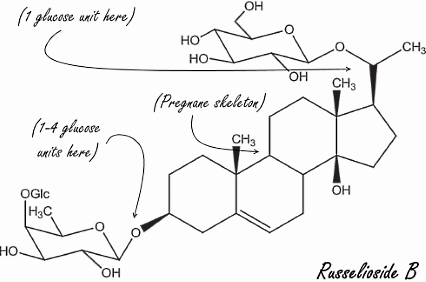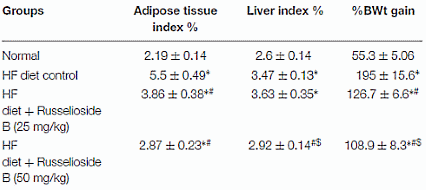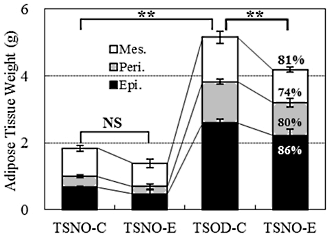|
Definition: "An ergogenic aid is any substance or phenomenon that enhances performance "
|
|
||||||||
14.11.2018 |
|
|
Russelioside-B, a natural fat loss steroid
Twelve years ago, when Hoodia gordonii was still hot, hip & promising, we seriously thought that the supplement industry finally had an effective weight loss supplement in the pipeline. Not so. The Egyptian pharmacologist Essam Abdel-Sattar may have found a worthy replacement. In the cactus Caralluma quadrangula he found a relatively simple steroid-like substance, that shows some remarkable effects in animal studies.
Study
A control group received fat-rich feed without active substances; the animals in a second control group received standard feed without active substances.
Results
Not surprisingly, russelioside B also inhibited the growth of fat cells. [Figure] The pregnane glycoside protected insulin's effectivity, and limited the rise of HOMA-IR [a measure of insulin resistance].
Mechanism
Another possible mechanism is that russelioside B makes cells consume more energy. Russelioside-B inhibited the reduction of UCP-1 and -2 due to a high-energy diet. UCPs make cells convert more nutrients into energy - in a less efficient way.
Conclusion
"Therefore, the overall antiobesity action of russelioside B may be, at least partly, attributed to its anti-inflammatory and adipokine modulating activities in addition to it is favorable effect on energy expenditure."
"Future studies are warranted to investigate the pharmacological actions of russelioside B on important organs such as the liver and to fully explore its compensatory mechanisms against the metabolic effects of high fat feeding in rats."
Source:
More: Archives:
|
|
||||||||||||||||








